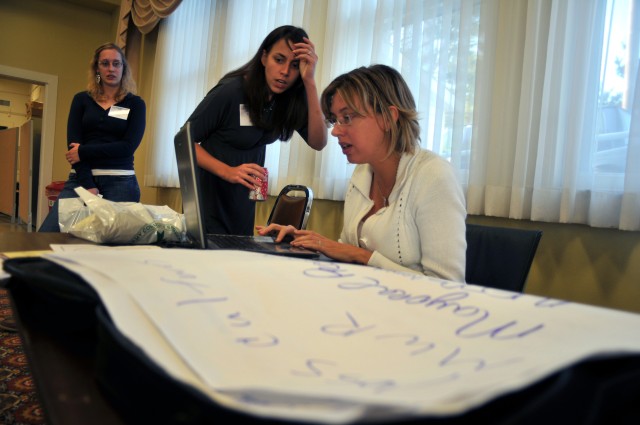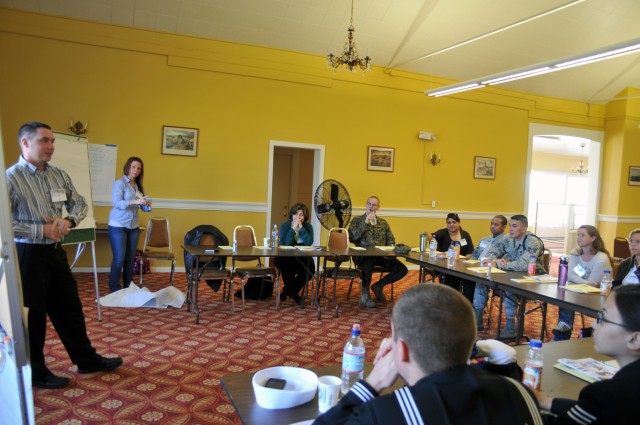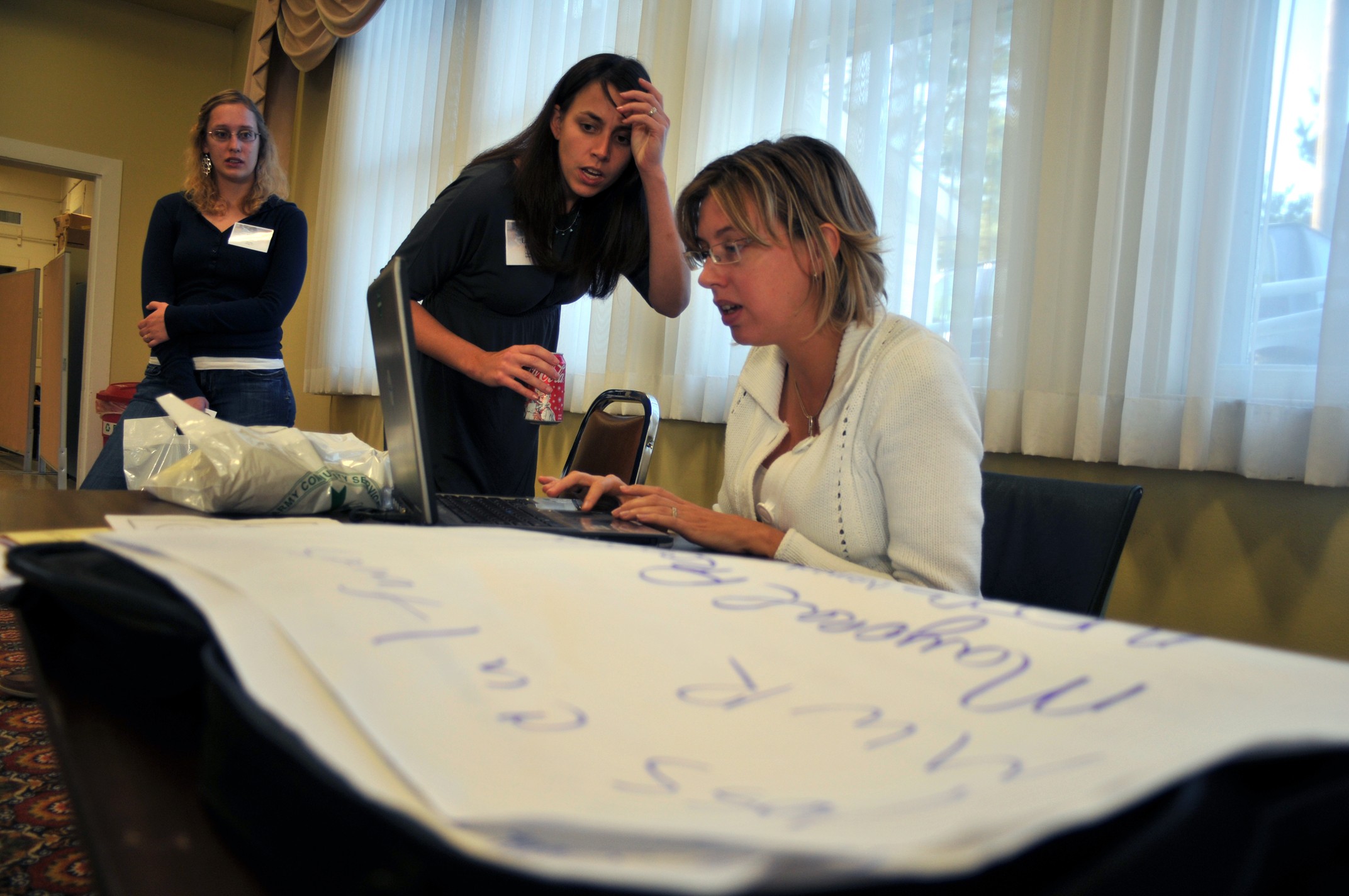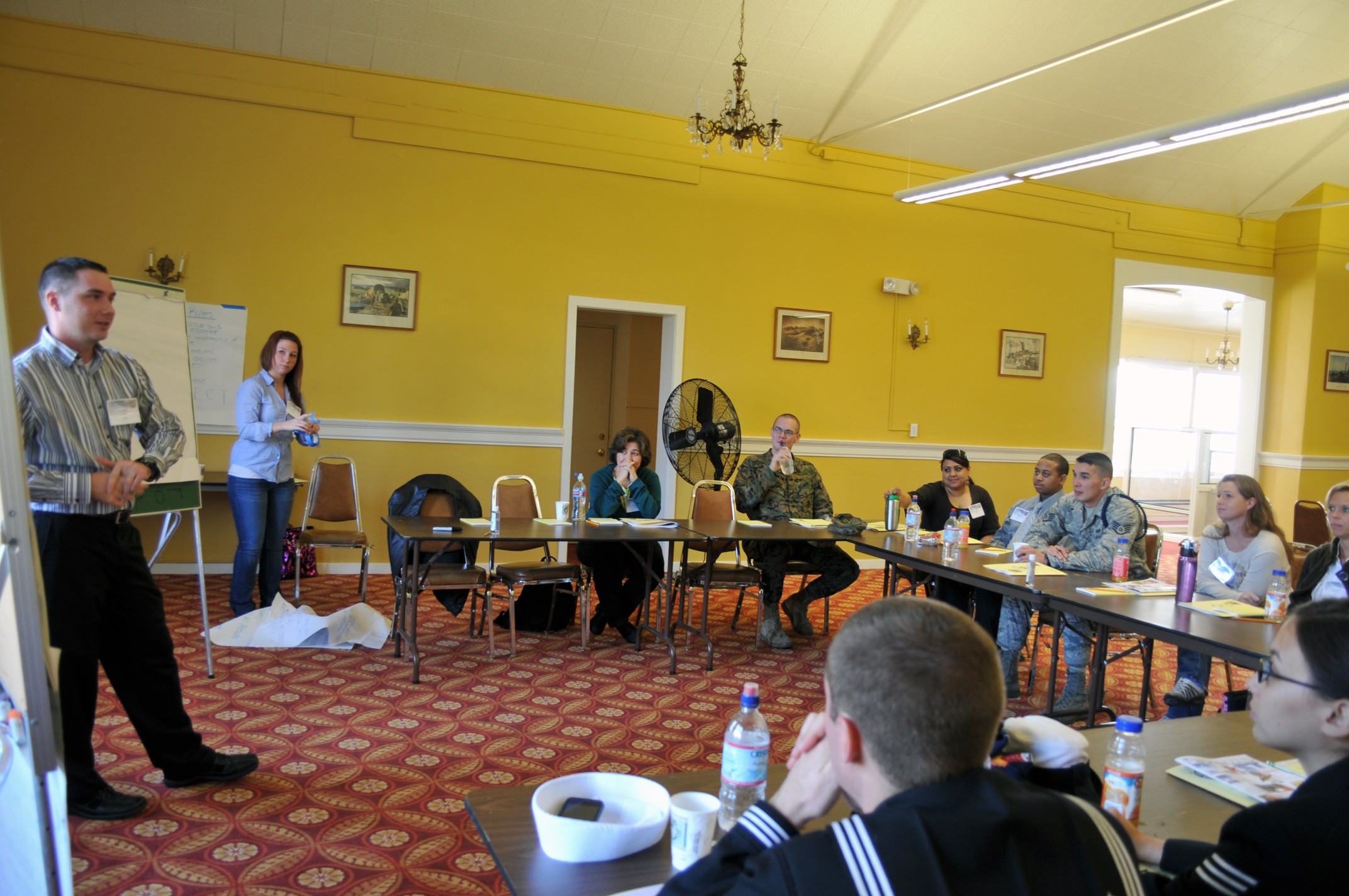PRESIDIO OF MONTEREY, Calif. - The Presidio of Monterey Army Family Action Plan symposium was held here at the Weckerling Center, Nov. 5-6.
The symposium is an annual event that allows POM personnel to address issues in a group forum, ultimately coming to a consensus on what they deem are the key issues.
The group presented them to Col. Sue Ann Sandusky, commandant of the Defense Language Institute Foreign Language Center, and Pamela Von Ness, deputy garrison commander, at the conclusion of the sessions.
Beginning with a briefing on the duties and requirements of selected delegates and subject matter experts from the various offices and services that make up the Presidio, participants rallied to their respective groups based on categories that affected them.
Discussing issues ranging from housing to Family and Morale, Welfare and Recreation, the participants were able to have no-holds-barred conversations on their concerns and to discuss possible solutions openly, guided by facilitators who kept their respective groups focused.
After discussing their issues, the groups were required to come to a consensus on the top three they wanted to discuss in front of Sandusky.
Before presenting, the Presidio of Monterey personnel observed a moment of silence for the fallen Soldiers and civilians who were killed during the shooting on Fort Hood, Texas, Nov. 5.
After the sobering silence, it was back to the mission at hand: presenting the issues that will not only improve the lifestyle for the personnel here, but possibly Army wide.
Some of the issues discussed:
Orthodontic cap reimbursement
Aca,!Ac Orthodontic reimbursements do not cover current cost of care, do not cover family members over the age of 23 and provide a limited benefit for family members under the age of 23.
Aca,!Ac The reimbursement limit of $1,500 has not being adjusted in the last 15 years and causes hardship on military members seeking orthodontic service.
Aca,!Ac The proposed solution was to adjust the cap based on inflation, a $5,000 benefit per family member with a review every five years and to abolish the age limit.
Army Weight Control Program
Aca,!Ac At issue are Soldiers who pass the Army Physical Fitness Test, but are still penalized for not meeting the height and weight standards as dictated by Army Regulation 600-9.
Aca,!Ac This penalty results in the loss of trained and physically capable Soldiers, which affects unit cohesiveness and morale, further straining limited resources to recruit, train and assign Soldiers' replacements.
Aca,!Ac The proposed solution was to give company commanders the authority to determine who will be placed in the Army Weight Control Program based on overall fitness and professional appearance and the possible adoption of Air Force Instruction 10-248.
Aca,!Ac Currently, Soldiers placed in the AWCP are flagged for negative actions and are subject to possible actions such as discharge, ineligibility for promotion or barring from reenlistment.
School district restrictions
Aca,!Ac School district restrictions do not allow military members to place their family members in more conducive learning environments.
Aca,!Ac Because of the lack of educational options for military family members in areas where schools with violence problems, understaffing and lack of educational programs ultimately negatively impact military family members' education.
Aca,!Ac The proposed solution is to provide vouchers that allow family members to attend schools outside their residential district on a waiver basis.
Not everything coming out of the symposium was negative. With praise from the groups for the ride-share bus program and, to Sandusky's relief, the improvement of the dining facility, Sandusky jokingly professed her love to the person who made the comment.
"The issues presented were extremely well developed," Sandusky said, adding as she addressed the participants, "I'm glad you though it was worthwhile."
Von Ness, who has been attending programs such as this event for the last 25 years, also praised this year's execution of the AFAP symposium.
"This year's is easily one of the best," she said. "The issues presented were just tremendous."




Social Sharing